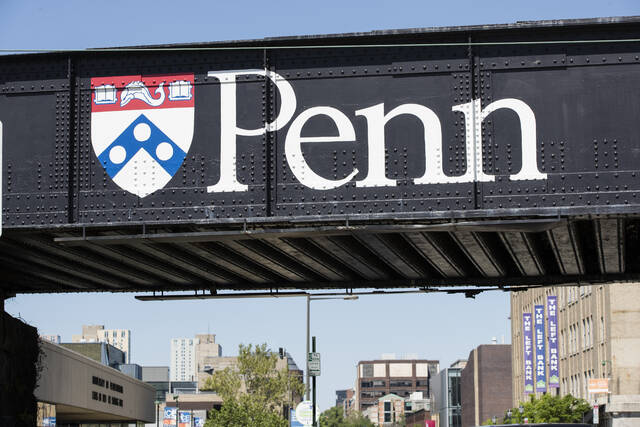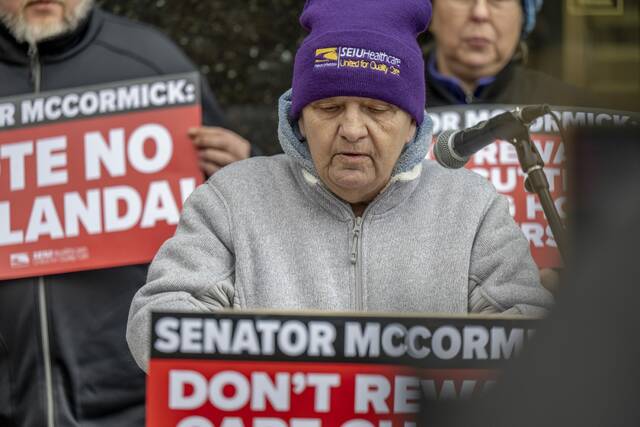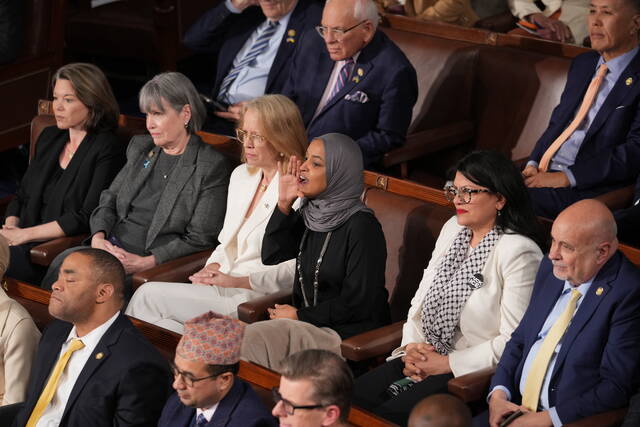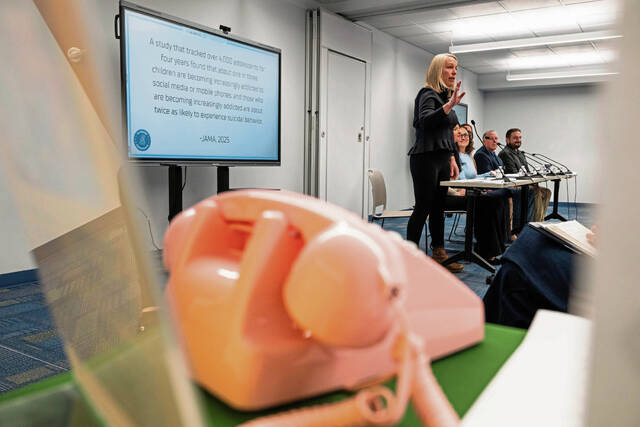Jonathan Zimmerman, a professor at the University of Pennsylvania, fears for his academic freedom.
His concerns are shared by many colleagues as the Trump administration tries to broker deals with universities for new educational goals.
“The big picture is that the administration has calculated that attacking universities, especially elite universities, is in their political interest,” Zimmerman, who teaches a history of education.
Concerns about government censorship are growing in higher education, with Pennsylvania among the states where a university received a Trump administration compact offering extra funding tied to specific conditions, according to people who spoke with TribLive.
Vague definitions
One concern for some professors is the vague language in the 10-page document, which was made public by The Chronicle of Higher Education.
The compact calls for a five-year freeze on tuition, a ban on considering sex and gender in admissions and a reduction in the number of international students admitted.
Under a section labeled as civil discourse, the letter reads, “signatories commit themselves to revising governance structures as necessary to create such an environment, including but not limited to transforming or abolishing institutional units that purposefully punish, belittle and even spark violence against conservative ideas.”
Tyler Coward, lead counsel for the Foundation for Individual Rights and Expression, said signing the document could suppress speech on campus.
“The Department of Justice is the long arbiter of whether or not an institution is compliant with this agreement, and if the department starts hinting that institutions need to take action against individuals or professors, the institutions will certainly be tempted to do so,” Coward said.
Zimmerman said he believes the language is intentional.
“In some ways, I think that’s probably deliberate, that the ambiguity works (in) their favor,” he said. “It is a terrifying idea to think that there could be some government functionary who could say to me or to anybody working at a university, ‘You’re belittling conservative thought and you’re breaking the agreement.’”
The Wall Street Journal first reported the agreement. May Mailman, a senior adviser for special projects at the White House, told the paper that the Trump administration does not intend to restrict funding solely to colleges that join the compact. However, schools that sign on will receive priority for federal funding and access to White House engagement opportunities.
“Institutions of higher education are free to develop models and values other than those below, if the institution elects to forego federal benefits,” the agreement states.
‘United show of force’
On Oct. 1, Penn along with the University of Arizona, Brown University, Dartmouth College, Massachusetts Institute of Technology, University of Southern California, University of Texas, University of Virginia and Vanderbilt University received the compact.
The group of universities — a mix of public, private, small, large, state and Ivy League schools — at first appear to be a random sample. However, Zimmerman says many of them have been the subject of deals with the Trump Administration in the past.
In July, Penn removed transgender athlete Lia Thomas’ records on the school’s women’s swim team, following an investigation and legal pressure from the Trump administration. Once Thomas’ records were removed, Penn began receiving previously revoked funding again. Zimmerman said the same is true for other universities on the list.
“(The compact) is very consistent with a lot of other activity they’ve taken already,” Zimmerman said.
While many of the schools have been reviewing the compact, the University of Texas has already released a statement that appears to be in favor of signing the deal.
“We enthusiastically look forward to engaging with university officials and reviewing the compact immediately,” Kevin Eltife, chair of the board of regents, said in a statement.
Because of the competitive nature of academia, it would be difficult for half the universities to sign the deal and half to refuse. Zimmerman said the only way to stop the compact is a united show of force and a joint statement pushing back against the deal.
Michael Goodhart, a political science professor at the University of Pittsburgh, said colleges can’t put themselves at a funding disadvantage, so if one university signs on, it could pressure others to follow suit.
“Maybe the idea is there to try to put together a list that will make it … hard for the leaders of those universities to get together and reject the thing or push back because they themselves represent different viewpoints with respect to this,” Goodhart said.
Balancing the books
Many universities have tuition-run budget models and rely on increases as well as international students paying full price, Goodhart said.
“International students typically pay full cost of their education. Whereas in state students, in particular, state universities are typically subsidized,” he said. “The percentage of international students in a class that has huge budgetary implications, and I can’t imagine that any institution will be enthusiastic about that.”
Zimmerman said schools need to weigh what’s financially beneficial and whether the additional funding offsets any losses from freezing tuition and limiting international student enrollment.
TribLive reporters reached out to a number of Pennsylvania universities to hear their stance on the compact as well as what they planned to do if presented with the offer.
Indiana University of Pennsylvania pointed reporter’s questions to PA State System of Higher Education (PASSHE) Director of Media Relations Kevin Hensil. He said PASSHE is not among the university systems that received the proposal and could not comment on specifics.
However, Hensil said PASSHE “froze tuition for seven consecutive years, from fall 2018 through spring 2024.”
Duquesne University spokesman Gabe Welsch also did not answer specific questions but provided a statement.
“If we were to receive one, as with all federal communications, we would review it carefully and endeavor to comply with all mandatory requirements while ensuring that any action we voluntarily opted to take would be consistent with our mission as a private Catholic and Spiritan university,” the statement said.
Welsch did not respond to follow up questions about whether the provisions outlined in the compact aligned with Duquesne’s mission.
Penn State University spokesman Wyatt DuBois stated that the university is closely monitoring developments with the compact.
“We cannot speculate at this time,” DuBois said.
Officials with Point Park University, University of Pittsburgh and Carnegie Mellon University did not respond to requests for comment.








